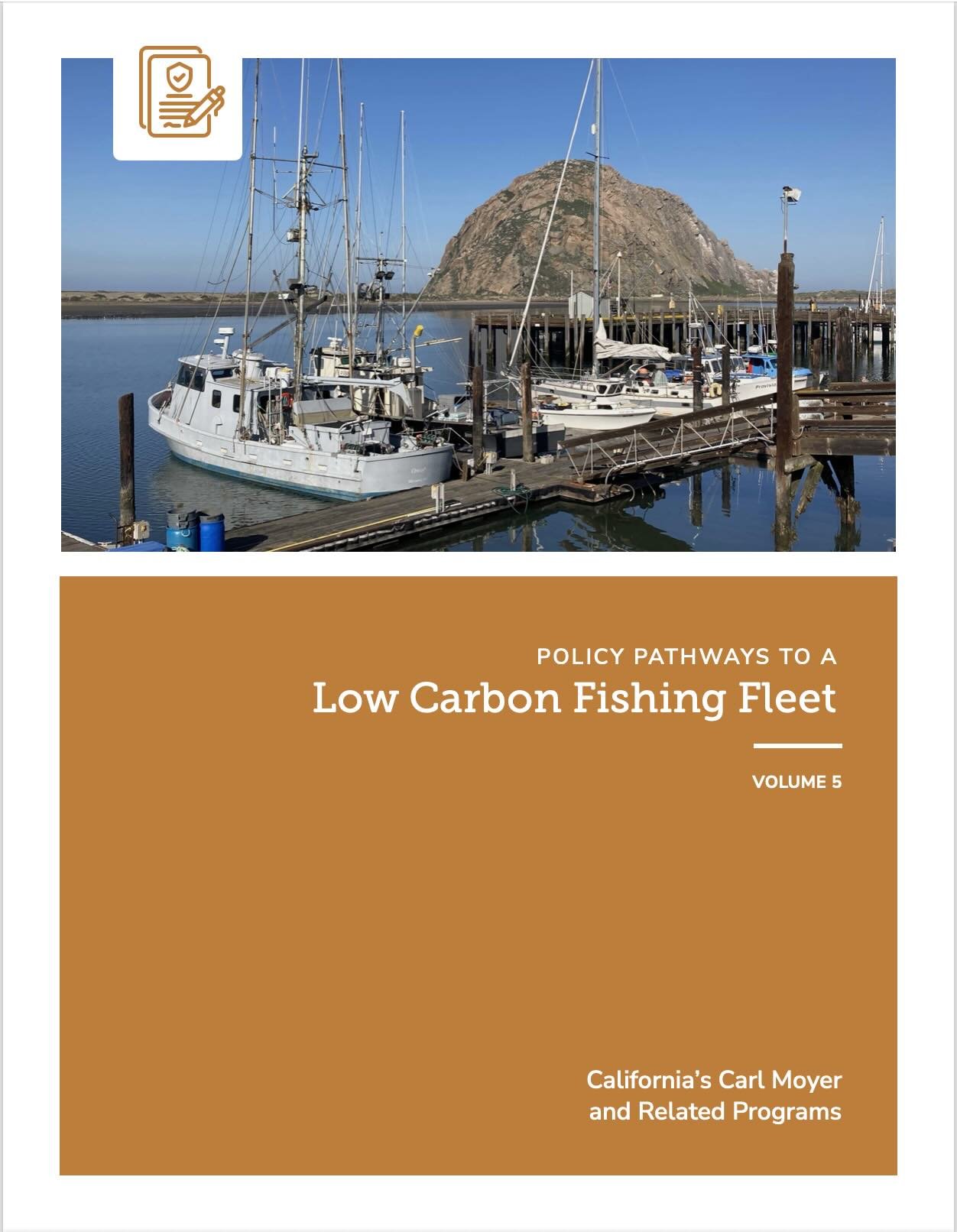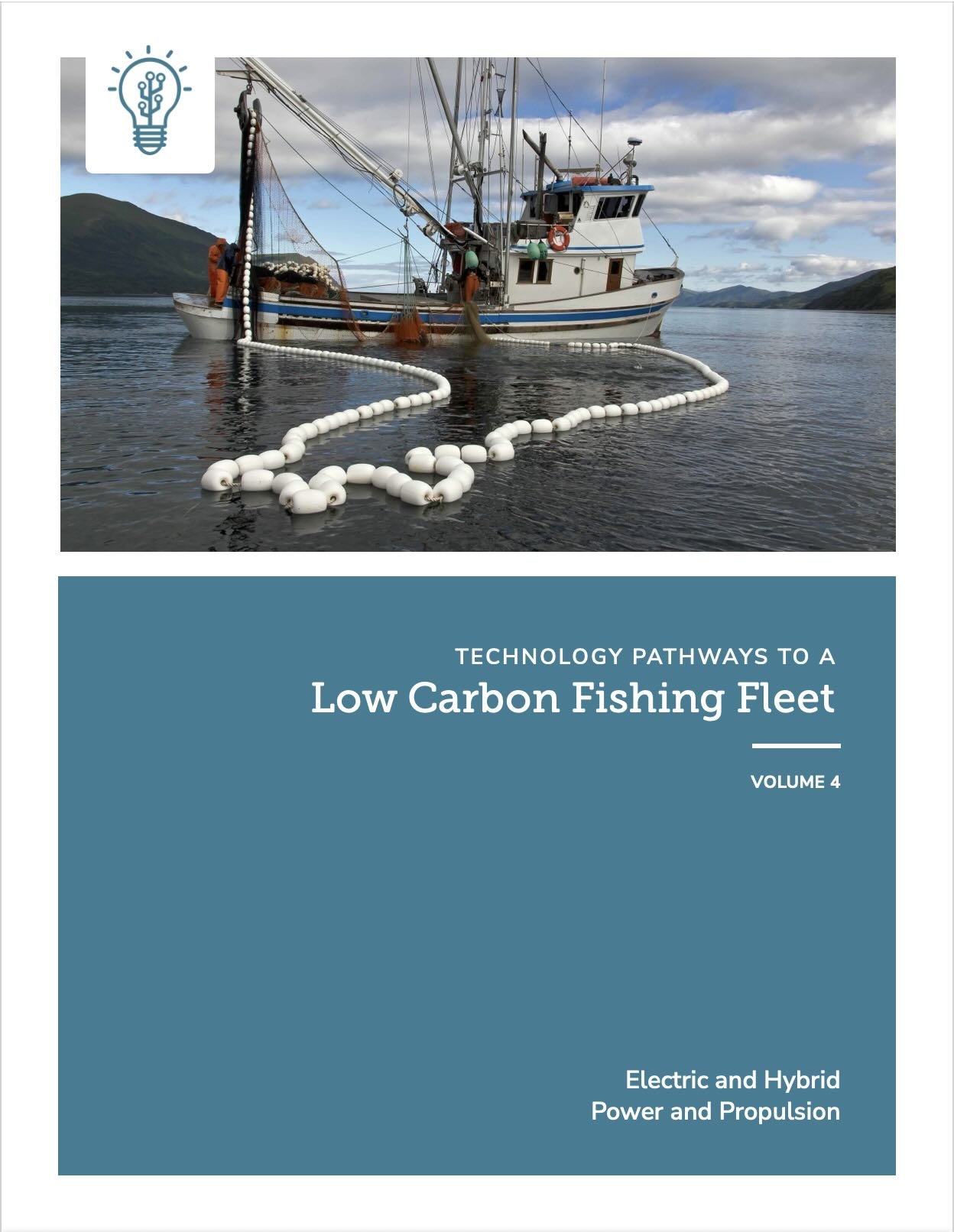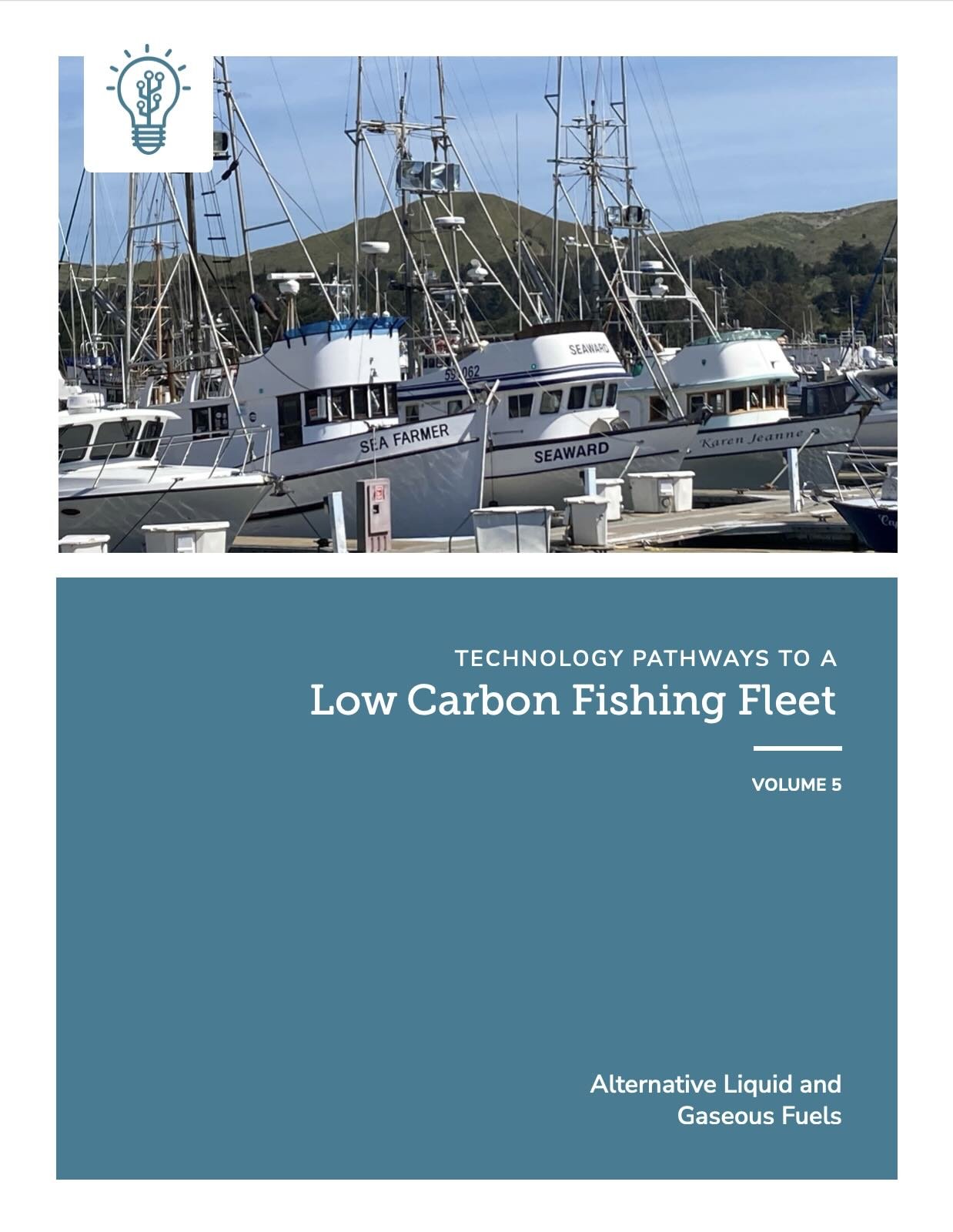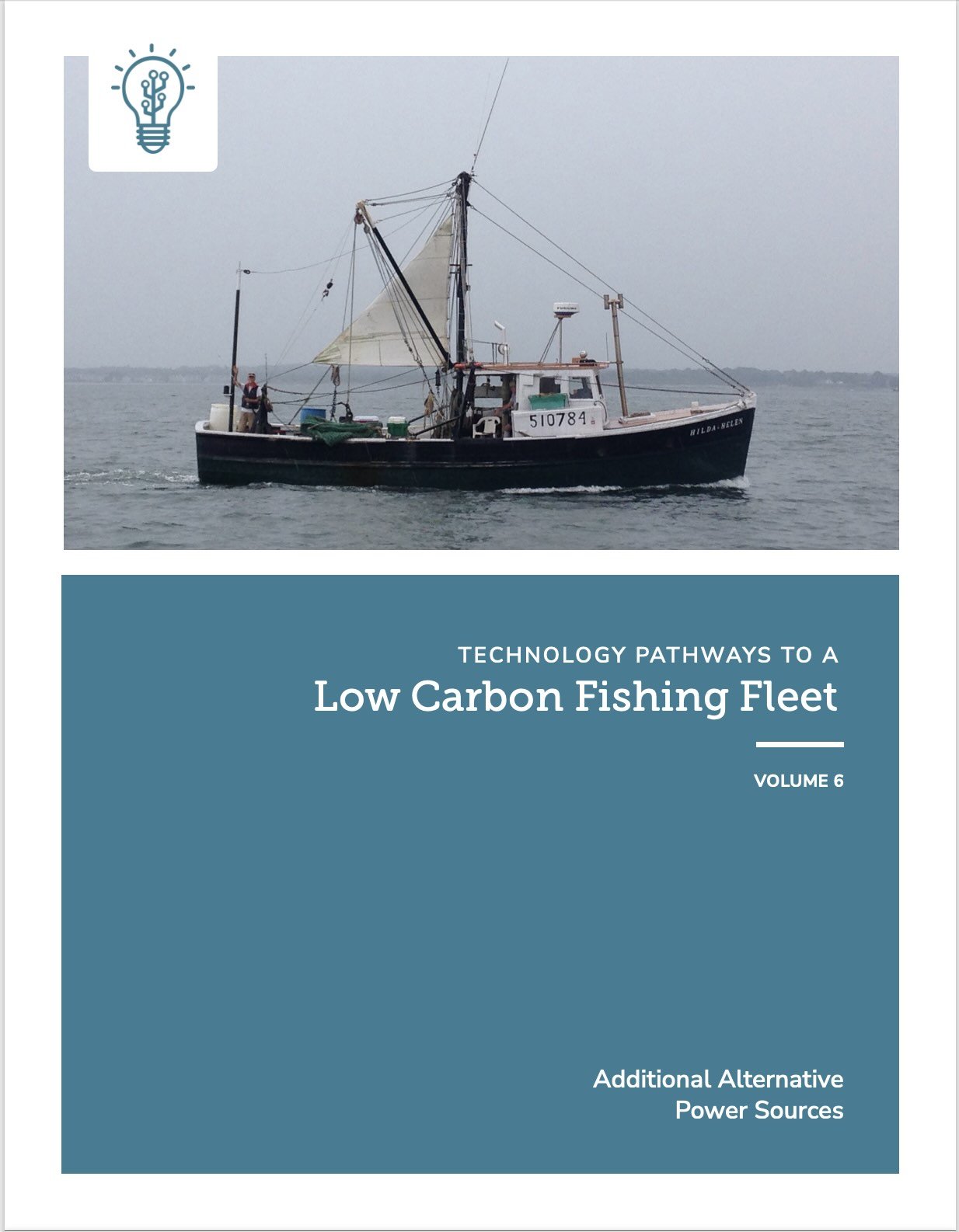
Low Carbon Fishing Fleet: The Research
Compiling knowledge coast to coast to support fishermen-led action
About the Research
In 2023–2024, five researchers with deep roots in the U.S. commercial fishing industry joined forces through the Fishery Friendly Climate Action Campaign to establish an evidence-based framework for fishing industry-led advocacy aimed at fostering a transition to a low-carbon fishing fleet.
The team engaged with stakeholders and experts across Alaska, the West Coast, and New England, including fishing vessel owners, port managers, funding intermediaries experienced in vessel energy improvements, and administrators of state and federal programs supporting vessel energy efficiency.
Their mission was: first, to gauge fishermen’s familiarity, perceptions, and firsthand experiences with various technological pathways capable of reducing carbon emissions in the fishing fleet; and second, to evaluate the effectiveness of existing state and federal initiatives in facilitating reduced diesel consumption and emissions.
Most critically, they asked fishermen: What new or improved programs would you like to see implemented to ensure a safe, affordable, equitable, and practical transition to a low-carbon fishing fleet?
Interview Participants
-

148
Vessel Owners
-

24
Incentive Program Recipients
-

16
Technical Assistance Intermediaries
-

11
Port Managers
-

4
Program Administrators
Meet the Research Team
-

Kinsey Brown
RESEARCH ASSOCIATE
Kinsey lives and works in Cordova, Alaska with her husband and daughter. She and her husband operate a family fishing business on their vessel, the F/V Lucid Dream, harvesting pink and chum salmon in Prince William Sound. Kinsey holds a Masters of Anthropology from the University of Hawai'i where she studied the role of local knowledge in fisheries management and social communication systems amongst fishermen.
-

Erika De la Rosa
INTERVIEW ENUMERATOR
Erika received her Master’s in Marine and Environmental Affairs from the University of Washington and earned her Bachelors in Political Economy and Social Entrepreneurship at Western Washington University’s Fairhaven College. Erika has fished commercially for fourteen years and has worked as a commercial fisheries advocate for watershed conservation, led maritime business organizations, and launched her own company for repurposing salmon trimmings into dog treats. Read a blog about Erika’s experience.
-

Tim Rovinelli
RESEARCH ASSOCIATE
Tim is a quahogger who bullrakes in Narragansett Bay and has a background in environmental science. Previously, he crewed on an oyster farm and set-netted salmon, as well as worked for US Fish and Wildlife, the National Park Service, and the Rhode Island Division of Marine Fisheries on various fishery projects. He graduated with a Bachelor of Arts in Environmental Studies from Brown University in 2013.
-

Sarah Schumann
PROJECT MANAGER
Sarah fishes in Rhode Island and Alaska, and has been a salmon cannery machinist, farmers market sales associate, and deckhand on gillnet boats, lobster boats, a seine boat, and an oyster farm. To Sarah, being a fisherman goes beyond catching fish; it means standing up for the ecosystems that produce wild seafood and the communities who depend on them. Sarah holds a Masters of Science in Environmental Policy from Oxford University.
-

Hattie Train
INTERVIEW ENUMERATOR
Hattie grew up on the waters of Casco Bay and the Gulf of Maine, where she developed a deep connection to the region’s fisheries and maritime heritage. Before earning a degree in marine science from the University of Maine, she spent her summers lobstering on her own student license and working alongside her father and grandfather on their lobster boats. Hattie founded Wharfside Associates in 2023 out of a passion for the fisheries and a commitment to preserving the maritime traditions that shaped her life.
Policy Pathways to a Low Carbon Fishing Fleet
The first five volumes in this series blend experiential accounts provided by fishermen with insights provided by program administrators and technical assistance intermediaries to evaluate current performance, utilization, latent opportunities, and areas for possible improvement in state and federal incentive programs capable of supporting energy efficiency and diesel emissions reductions on fishing vessels. The sixth volume in the Policy Pathways series synthesizes fishermen’s visions for new and expanded state and federal programs and policies aimed at facilitating a safe, affordable, and equitable transition to a low-carbon fishing fleet.
VOLUMES IN THE SERIES
Supporting Materials:
POLICY ANALYSIS
Through a collaboration with the Marine Affairs Institute at Roger Williams University, we procured a policy analysis of existing state and federal programs and a how-to guide on navigating the policymaking processes associated with these programs. These reports were produced through a funding collaboration with the Gloucester Fishermen’s Wives Development Programs, based in Gloucester, Massachusetts.
Roses Laughlin, Policy Analyst
Roses Laughlin is a former Research Attorney with the Marine Affairs Institute and the Rhode Island Sea Grant Legal Program. She graduated from the University of Oregon School of Law with a concentration in Environmental and Natural Resources Law.
Laughlin, R. 2024. Federal and State Financial Support for Reducing Emissions from Fishing Vessels
In this report: This analysis encapsulates the legal authorities and structures of the five incentive programs considered in our Policy Pathways series: the EPA’s Diesel Emissions Reduction Act (DERA), the USDA’s Rural Energy for America Program (REAP), and California’s Carl Moyer Program. Topics include fishing vessel eligibility, applicant eligibility, project prioritization schemes, enabling legislation, and agency implementation rules.
Laughlin, R. 2024. Expanding Pathways for Comprehensive Support for Commercial Fishing’s Involvement in Reducing Emissions from Marine Vessels
In this report: This analysis identifies specific policy-related leverage points that fishing industry change-makers can target when striving to expand and improve existing programs to support a transition to a low carbon fleet — for instance, whether a desired improvement requires legislative reauthorization or whether it can be made through federal agency rulemaking, local agency planning, or another approach.
Technology Pathways to a Low Carbon Fishing Fleet
Volumes in this series explore real-world experiences, motivations, and barriers to adoption for numerous energy conservation strategies, as well as next-generation power systems such as electric propulsion, alternative liquid and gaseous fuels, and more. This series serves not only as a foundation for thoughtful design of policies to support the development, testing, and adoption of a menu of viable technologies, but also as a jumping-off point for continued dialogue and peer-to-peer knowledge transfer among fishermen — a critical precursor to technology adoption.
VOLUMES IN THE SERIES
Enabling Conditions for a Low Carbon Fishing Fleet
Because innovation and policy-making can only succeed if designed with attention to the real-world contexts in which they occur, these volumes: (a) synthesize information about current energy use on fishing vessels, including a set of profiles of regional fishing fleets whose participation was central to the research; (b) draw attention to economic and ecological challenges facing the fishing industry and the role of human capital, fisheries management, and other regulations in constraining or enabling opportunities for energy innovation; and (c) bring together voices of fishermen and port managers to underscore the need for coordinated planning and investment to pave the way for alternative fuels and electrification across fishing ports of all sizes and across the urban-to-rural spectrum.
VOLUMES IN THE SERIES
Reactions from the Fleet



















